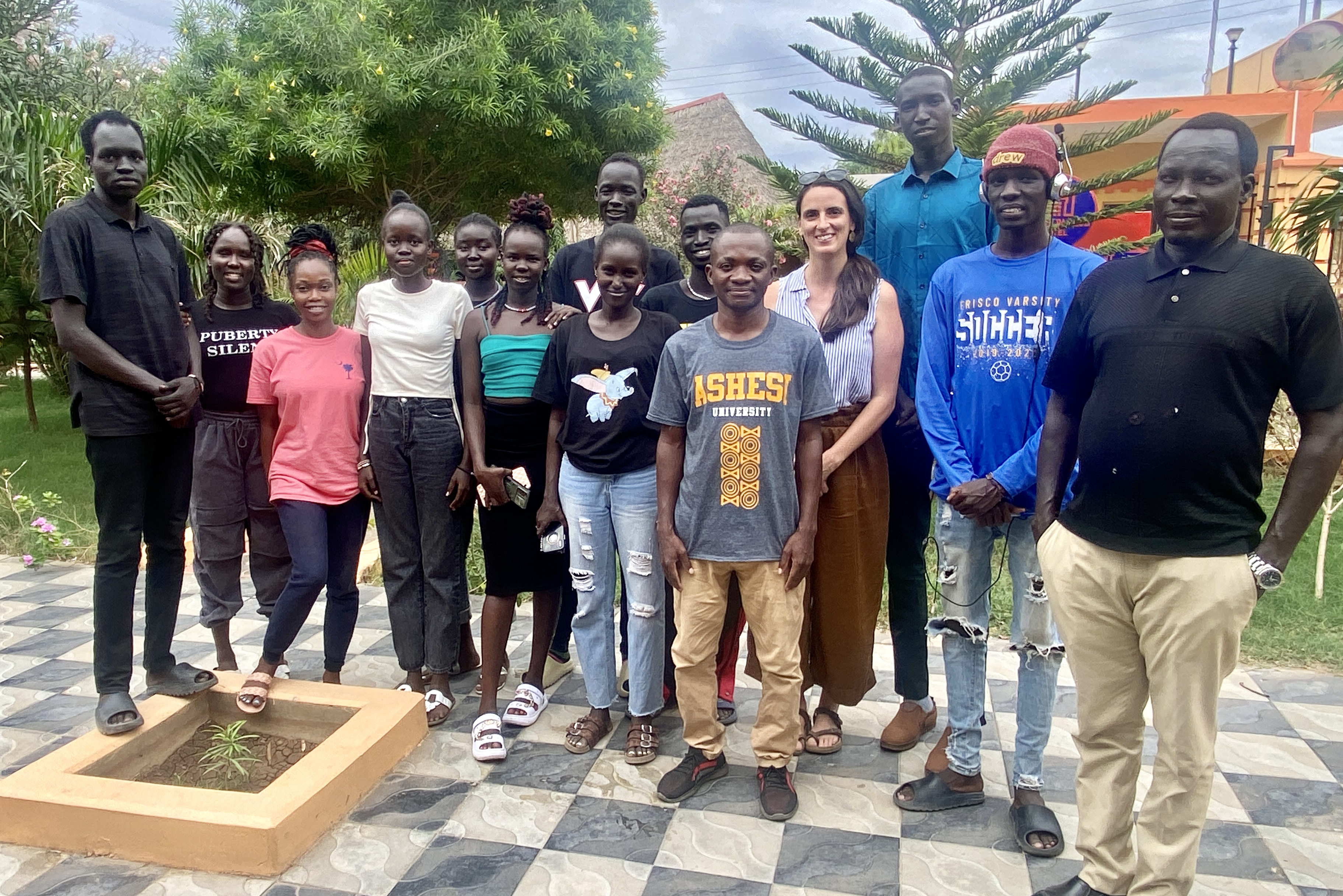By Deirdre Hand
October 16, 2023
Photos provided by the author
My work as the Community Engagement Specialist with the Center for Rural Education is one-half of a dual role: that is, I also spend half of my work week as the Community Engagement Specialist for the Center for Refugee, Migrant, and Displacement Studies. Luckily, the two Centers share an office space, so it’s relatively easy to switch back and forth between tasks related to each individual Center. One particular project I’m working on now actually bridges both Centers, who are partnering to provide mentorship support to immigrant/displaced/asylum-seeking high school students who live in rural communities near Virginia Tech. In addition to this work, I also help run a non-profit organization, Elimisha Kakuma, and on a recent trip, I was able to learn from and connect with people in ways that will be beneficial going forward with all three roles.
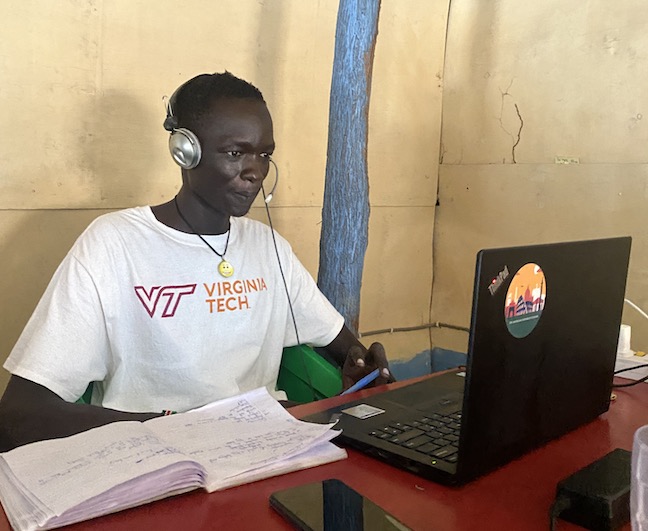
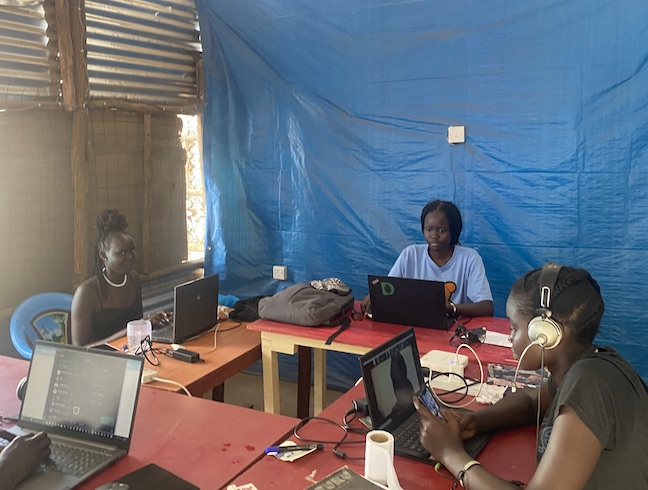
The first part of my trip was to visit our students in Elimisha Kakuma, the university-access program based in Kakuma Refugee Camp I co-founded in 2021 with three of my former students, Diing Manyang, Dudi Miabok, and Mary Maker. Diing, Dudi, and Mary were once in the same situation in which our current students now find themselves: having graduated high school, but with few opportunities to access higher education. Worldwide, fewer than 6% of refugees are enrolled in higher education, and in Kenya, that number is even lower. We founded Elimisha Kakuma while I was teaching full time in D.C. Public Schools and while Diing, Dudi, and Mary were enrolled as undergraduate students at George Washington University, Harvard University, and St. Olaf College, respectively. The purpose of our program is to prepare students academically for university-level content and to help them find and apply for scholarships to study at universities around the world.
As we launched our gofundme campaign and began thinking about recruitment, I was contacted by my former professor, Dr. Brett Shadle, who, along with his colleagues Dr. Katy Powell and Dr. Rebecca Hester, had recently created VT’s Center for Refugee, Migrant, and Displacement Studies. CRMDS became Elimisha’s first important partner, providing undergraduate interns who tutored our students and offered feedback on writing for their college applications. We are now working with our third cohort, and we’re thrilled to report the success we’ve had so far, with students studying at schools including Dartmouth, Trinity College, Elmhurst University, University of Tulsa, Simon Fraser College, University of Calgary, Western University, Macalester College, Calvin University, Dalhousie University, U.C. Berkeley, Dalhousie University, Jomo Kenyatta University of Agriculture and Technology, and United States International University.
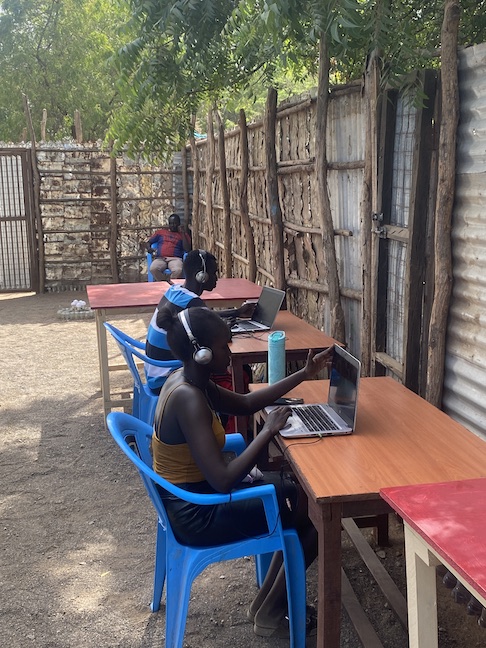
During my visit to Kakuma in September, we hosted guests from Rutgers University and Talking Eyes Media. Julie Winokur and Tim Raphael (co-founders of the Newest Americans), conducted a four-day digital storytelling workshop for our students and students from another organization. The students improved their photography skills on their smartphones and were able to tell beautiful stories about their lives and communities (see Winokur’s recent blog post for more details). The rest of my time in Kakuma was spent meeting with students one-on-one; as their college counselor, I will write their counselor recommendation letters, and having the opportunity to connect with them in person is a great change from Zoom classes and WhatsApp conversations.
One of our main takeaways from our time together is that we all need to be more conscientious about taking breaks. I noticed that students would just work through the 30-minute breaks that we provided in our daily schedule. Of course, I am as guilty of this as they are, but sometimes it takes noticing other people you care about doing the same unhealthy behaviors for you to recognize the need to adjust your own habits. So, in the time I was there, we created a new plan as a class, with the social chair taking the lead, to make sure that everyone got up from their tables, closed their laptops, and went out into the world to move, talk, and laugh. More than a few times, we ended up heading to the laga, which is a dry river-bed that floods when it rains in Uganda, making transportation across the camp impossible. We’d stand out in the dusty laga, and the students would take turns thinking of games that they used to play as kids, and doing a Tik-Tok challenge, which we may or may not post on social media one day.
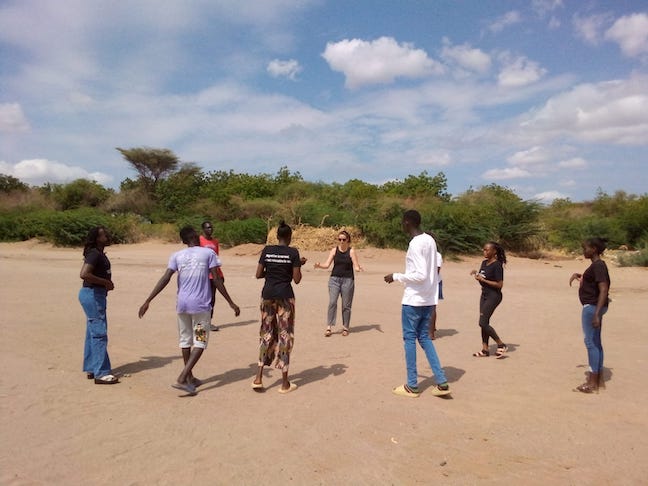
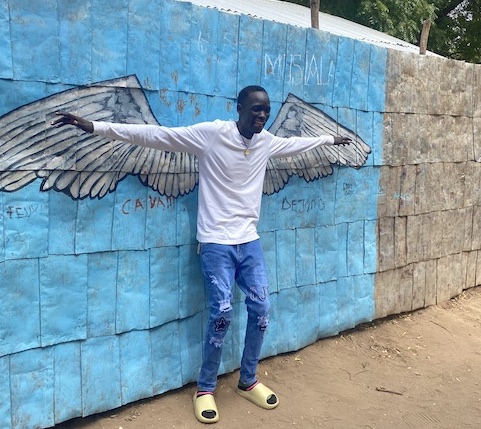
After about 10 days at the camp, I traveled to Lusaka, Zambia, for the annual HALI Indaba. The HALI Access Network is described as “an association of non-profit organizations across Africa that work with high-achieving, low-income (HALI) students to access international higher education opportunities.” Elimisha Kakuma became a member of HALI this year, after being mentored the previous year, and we recently published a blog on their website introducing ourselves and our work.
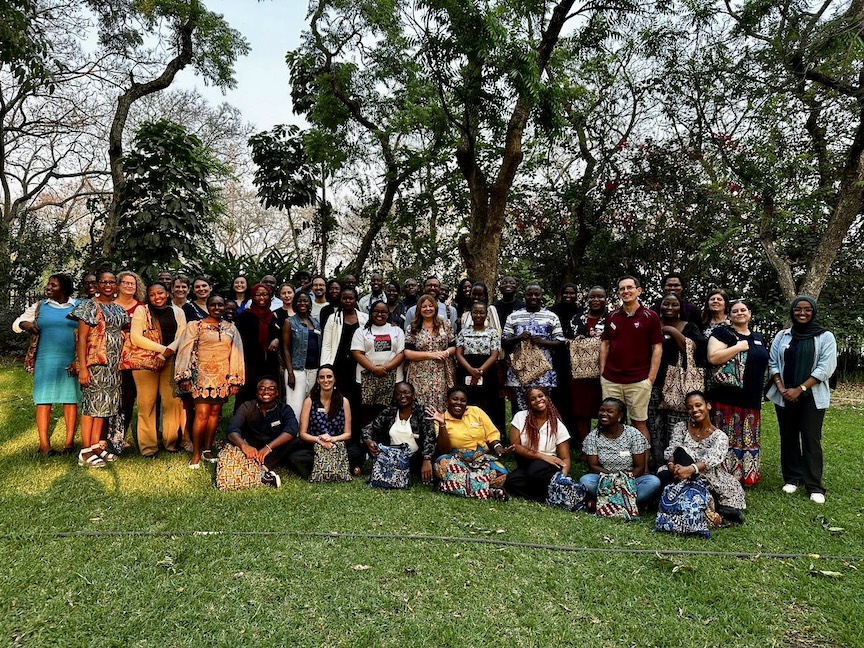
In addition to members, there are “friends of HALI”—admissions representatives from universities from North America, Europe, and Africa—who attend. The connections and relationships built among people doing similar work across the continent is invaluable. Sessions during this Indaba included thinking through how we support students after they finish university, recruiting strategies, planning a college counseling curriculum, writing letters of recommendation, decolonizing African education, and sharing information between admissions representatives and college access organizations. This year we also created the Refugee Task Force to support members whose classes include refugee students, and I was named as the leader of this task force. Our goals include increasing access to higher education for refugees as well as using our collective leverage to navigate barriers that refugees face, including documentation.
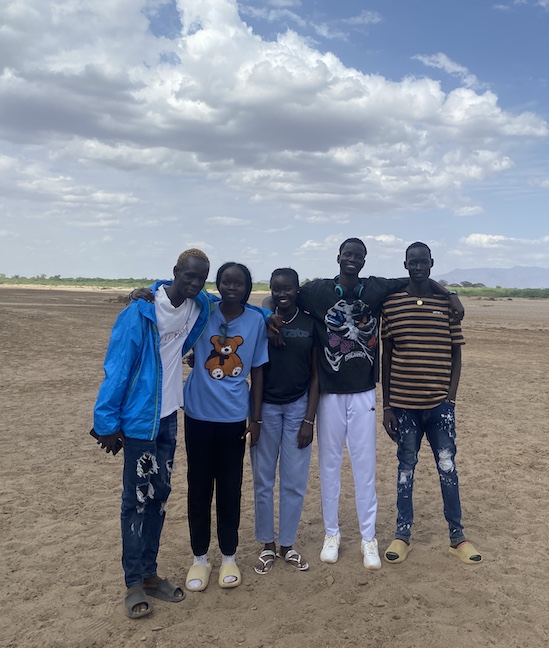
Being on the ground in Kakuma and at the HALI Indaba was the right way to re-energize before the intensive application season begins. As we look to the future, our goals at Elimisha are to create more partnerships with universities, as we have done with Virginia Tech and Rutgers; raise additional funds in order to keep the organization running smoothly; support our students as they begin their university studies; and find ways to enroll (and fund) more students in future cohorts.
In my role as Community Engagement Specialist at both the Center for Rural Education and the Center for Refugee, Migrant, and Displacement Studies, I am committed to continuing to support educational access for marginalized populations, whether it be for students in Kakuma Refugee Camp or in a nearby rural community with a high population of multilingual learners who come from displaced populations. A philosophy I learned in my time teaching in Rwanda, and that all of my African students in Kakuma are aware of, is “Ubuntu,” which stresses the vital connectedness of people and our shared humanity. It’s often translated as “I am because you are.” As we move forward to launching our new mentorship program supporting rural multilingual learners in Southwest Virginia, this shared humanity is at the core of both of these Centers; being able to spend time in Kenya and Zambia reminded me of this core belief that will continue to motivate our work.
Deirdre Hand, the Community Engagement Specialist for the Center for Rural Education and the Center for Refugee, Migrant, and Displacement Studies, is a two-time graduate from Virginia Tech and an educator with a Master’s in Education, Curriculum & Instruction, with a concentration in TESOL (Teaching English to Speakers of Other Languages). She is also the Co-Founder, Academic Director and College Counselor of Elimisha Kakuma, a university-access program in Kakuma Refugee Camp in Kenya.



